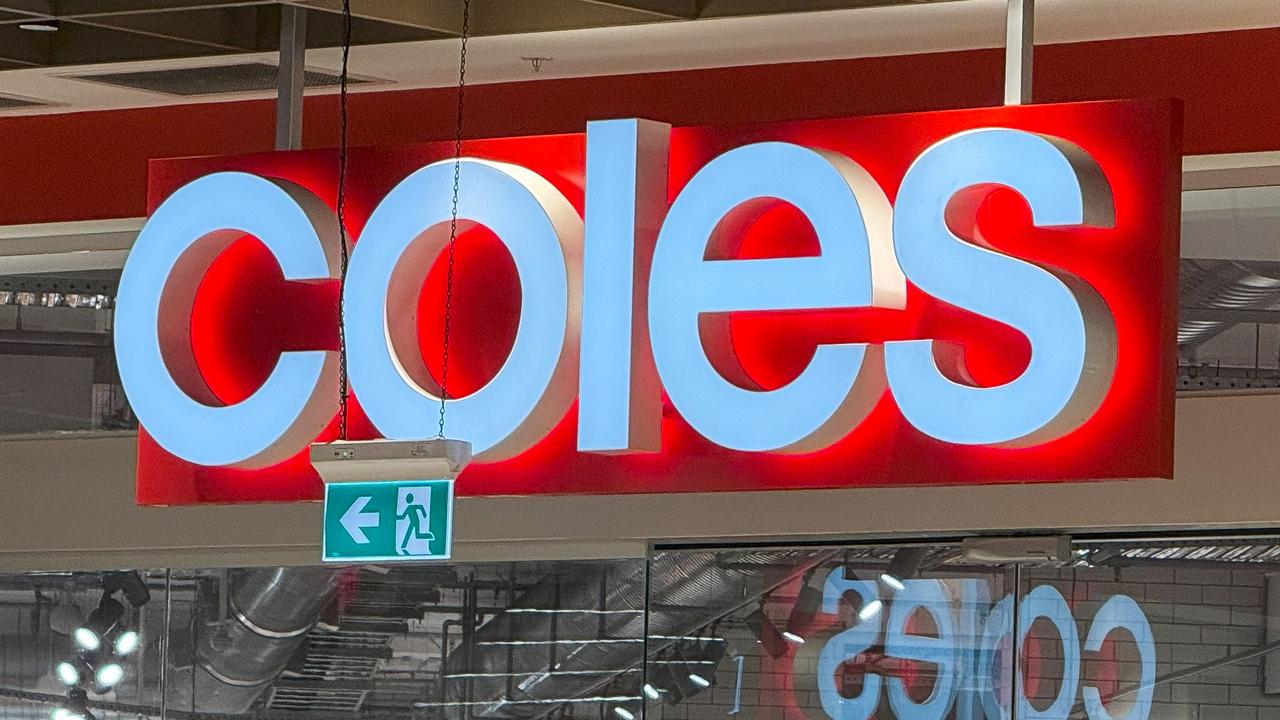Dramatic shake-up needed to save Myer and David Jones
THINGS are looking grim for our marquee department stores Myer and David Jones. Here’s why they will need a dramatic change to survive.
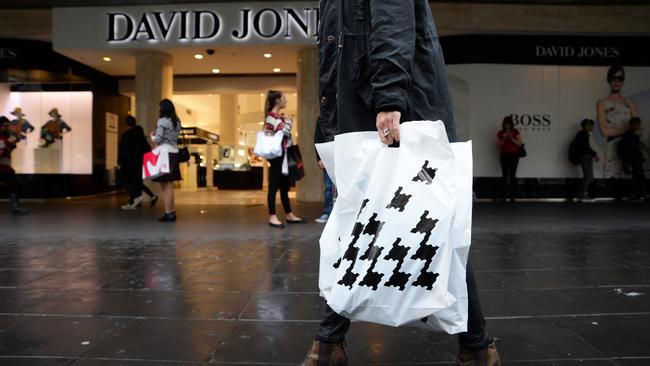
THE future of Myer and David Jones is in serious peril.
To survive, they will need to change so much we won’t recognise them.
Customers are starting to hate the department store giants — and so is the sharemarket.
Myer’s share price finally fell below $1 this year, meaning anyone who bought in when the company was spun off from Coles Myer in 2010, when its share price was $4.10, has lost more than three quarters of their money.
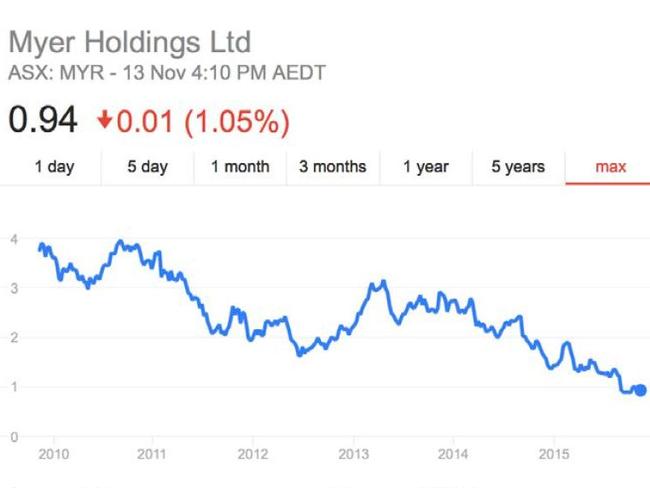
Myer boss Richard Umbers is facing an angry mob. And it’s not even customers furious that they can’t find a salesperson.
The problem is the old chief executive, Bernie Brookes, getting huge lumps of cash this year (including a termination payment of $1.55 million).
Shareholders intend to vote against the pay. This could get serious for Myer; the whole board will be kicked out if shareholders vote against it two years in a row.
But the department stores have bigger and more serious problems than that. They have no idea how to survive in the modern retail environment.
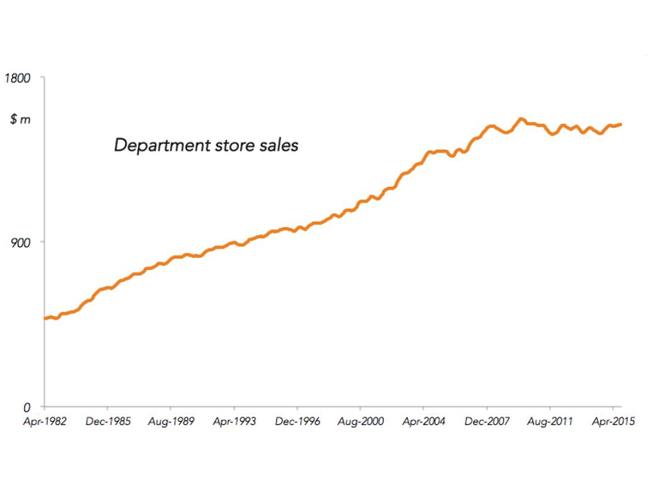
Sales are flat and have been for almost ten years. The internet is gobbling up customers, yes. But actually, online sales are not growing as fast as everyone thought.
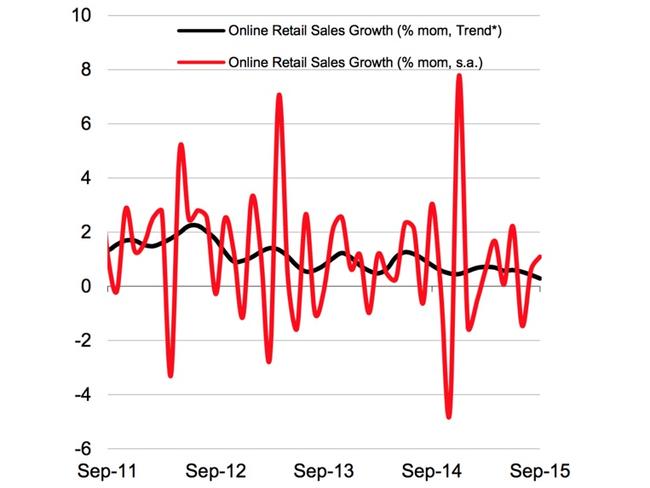
Buying online is not the terrific experience we hoped for. Not yet, anyway. So department stores should be able to play the game and win.
Why can’t they?
Here’s the problem. I remember in the 1990s when a pair of sneakers first cost more than $100. You can still easily pay less than $100 for sneakers.
Except for a little bump around the time of the GST, there has been no inflation in clothing for years.

It’s hard to grow your business when the price of your main goods are flat.
But it is not impossible. There is one business showing Myer and David Jones how it is done.
The Swedish clothing retailer H&M is succeeding because it sells its own brands. It is super cheap, but also makes surprisingly high profits. Gross margins are an incredible 55 per cent.
If you think about it, H&M is selling home brand items, just like Aldi does, and like Coles and Woolworths are learning to do. This looks like the future of retail.
Meanwhile, Myer is heading in the other direction. It cut many house brands, and is focusing on filling its stores up with little areas where outside brands can operate and have their own unique identity.
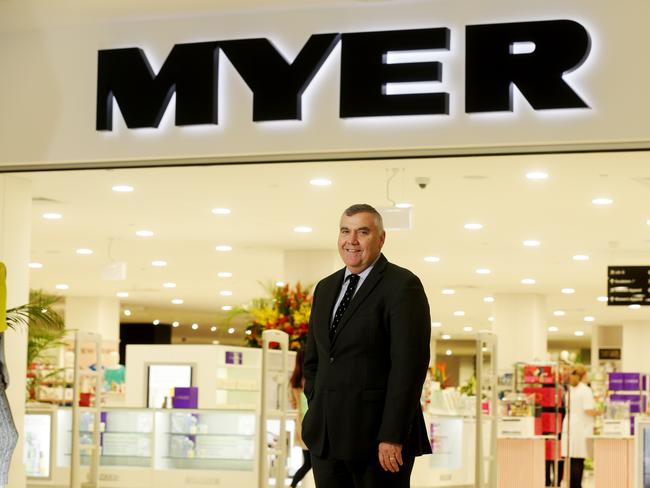
Myer is becoming less like a store with its own identity and more like a landlord, renting out space to brands that have pulling power.
If the store’s brand is worth less than the brands they are selling, what do Myer or David Jones add to the experience? The answer is not clear.
This strategy could end up with them running a shopping mall inside a shopping mall. That won’t end well.
Mall operators like Westfield (a global company about 20 times bigger than Myer) will soon realise they can do that job without Myer’s help.
Myer and David Jones need to go in the other direction.
They need to build their own brands. They need to sell their own products. And they need to actually focus on service.
Myer and everywhere else, its a nightmare shopping anywhere these days. I avoid doing it. https://t.co/XiX9M2PasL
— The Duke Of Agile. (@Deadly_Thoughts) July 17, 2015Is it self service at @myer these days? #retail pic.twitter.com/6SPCYoJBle
— David Kavanagh (@kavanagh27) July 24, 2015Shopping in a department store can and should be fun, not a chore. The big city centre department store has been a destination for shoppers — especially women — for centuries.
This is how the BBC describes the first department store. “The title of the world’s first department store belongs, perhaps, to Harding, Howell & Co’s Grand Fashionable Magazine at 89 Pall Mall in St James’s, London. Opened in 1796, this handsome Georgian shop was divided into four departments, offering furs and fans, haberdashery, jewellery and clocks, and millinery, or hats.
“Harding, Howell & Co was focused on the needs and desires of fashionable women. Here, at last women were free to browse and shop, safely and decorously, away from home and from the company of men.”

No retail store will ever be able to compete with the internet on price.
To survive, department stores need to make sure they control costs, by selling goods whose prices they control.
But, mostly, they need to focus on making themselves into a destination and an experience that can be enjoyable again.
That may mean spending some of the cash that was going to the chief executive on hiring more customer service staff.
Jason Murphy is an economist. He publishes the blog Thomas The Think Engine. Follow him on Twitter @jasemurphy.




